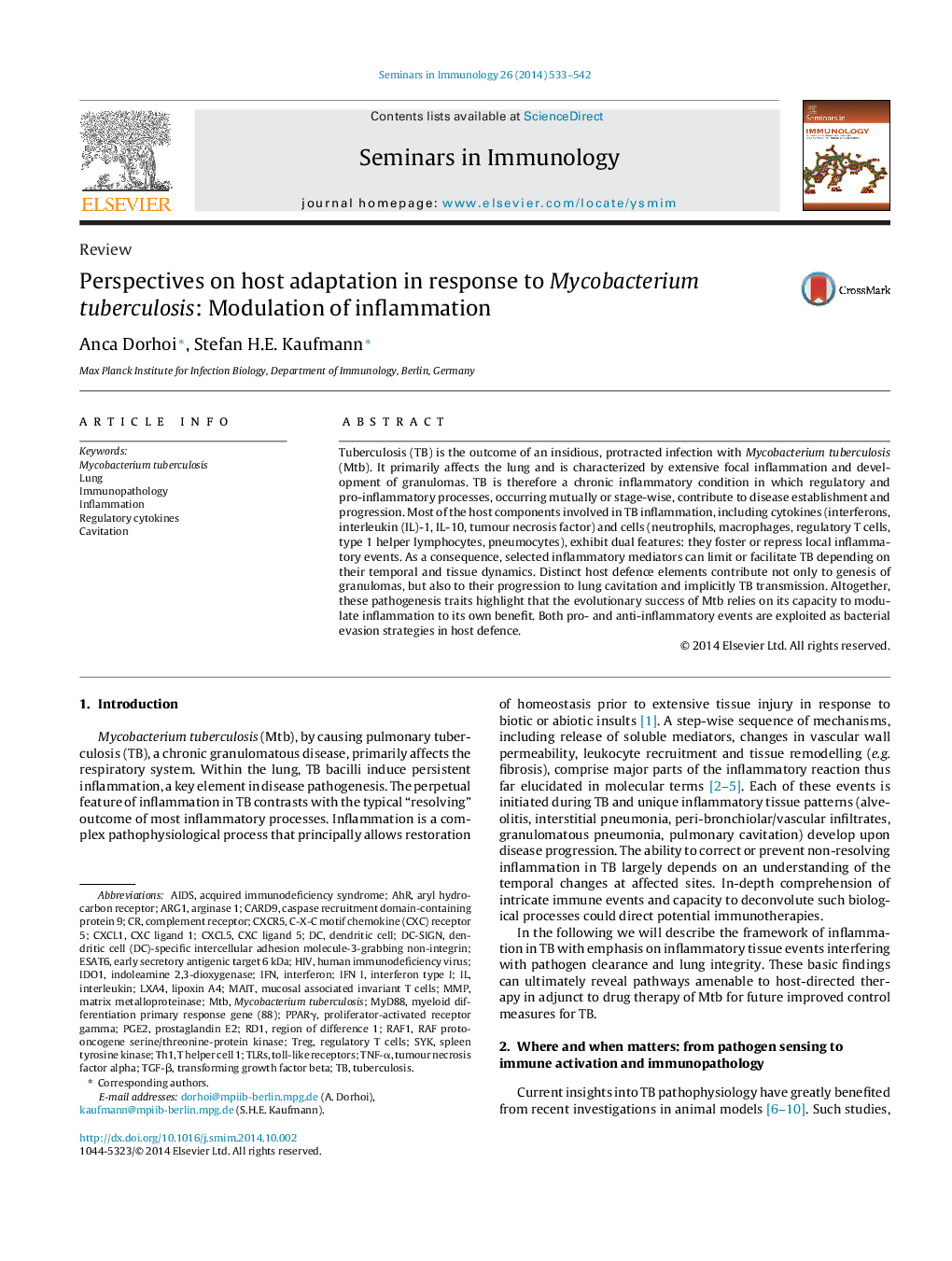| کد مقاله | کد نشریه | سال انتشار | مقاله انگلیسی | نسخه تمام متن |
|---|---|---|---|---|
| 6125889 | 1221036 | 2014 | 10 صفحه PDF | دانلود رایگان |

- Pro- and anti-inflammatory mechanisms contribute equally to establishment and progression of tuberculosis.
- Inflammatory mediators exhibit distinct roles at various stages of tuberculosis. Therefore in-depth temporal characterization of inflammation can provide guidelines for future interventions.
- Inflammatory events are conditioned by distinct inflammatory microenvironments and depend on lung anatomy and physiological imprints.
- Granuloma caseation, tissue liquefaction and lung cavitation form the basis for disease transmission.
Tuberculosis (TB) is the outcome of an insidious, protracted infection with Mycobacterium tuberculosis (Mtb). It primarily affects the lung and is characterized by extensive focal inflammation and development of granulomas. TB is therefore a chronic inflammatory condition in which regulatory and pro-inflammatory processes, occurring mutually or stage-wise, contribute to disease establishment and progression. Most of the host components involved in TB inflammation, including cytokines (interferons, interleukin (IL)-1, IL-10, tumour necrosis factor) and cells (neutrophils, macrophages, regulatory T cells, type 1 helper lymphocytes, pneumocytes), exhibit dual features: they foster or repress local inflammatory events. As a consequence, selected inflammatory mediators can limit or facilitate TB depending on their temporal and tissue dynamics. Distinct host defence elements contribute not only to genesis of granulomas, but also to their progression to lung cavitation and implicitly TB transmission. Altogether, these pathogenesis traits highlight that the evolutionary success of Mtb relies on its capacity to modulate inflammation to its own benefit. Both pro- and anti-inflammatory events are exploited as bacterial evasion strategies in host defence.
Journal: Seminars in Immunology - Volume 26, Issue 6, December 2014, Pages 533-542